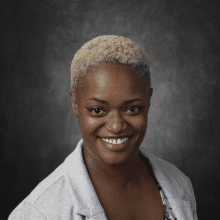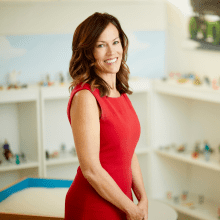 Credit: Warunporn Thangrhongtip | EyeEm | Getty Images
Credit: Warunporn Thangrhongtip | EyeEm | Getty Images
Even in years without a global pandemic, catastrophic weather events, and other 2020 phenomena, many people find the holidays stressful, exhausting, or depressing. According to the American Psychological Association, 44% of women and 33% of men surveyed feel stressed during the holidays. The holiday blues strike people experiencing the forced joyfulness and expectations of the season.
Common triggers include:
- Stress about family gatherings (even those on Zoom) that might devolve into arguments over politics or other sensitive topics
- Overspending, especially for people already feeling financial stress
- Pressure to create the most festively decorated home, bake professional-grade cookies, and find the "perfect" holiday gifts
Our guide offers tips for dealing with the holiday blues -- or perhaps even overcoming them -- with advice from professionals.
What are the Holiday Blues?
The holiday blues, explains Fatima Watt, Psy.D., director of behavioral health services at Franciscan Children's, "are feelings of stress, anxiety, and sadness that surround the holiday season."
The reasons for holiday blues vary by individual. According to clinical psychologist Michelle Paul, triggers include "memories of lost loved ones, and with that, a sense of yearning or aching to be with them," along with "too high or unrealistic expectations for what things 'should' or 'must' be."
Holiday blues, while generally temporary, may overlap with more serious mental health conditions, such as seasonal affective disorder or clinical depression.
Common Symptoms of the Holiday Blues
- Situational sadness
- Trouble concentrating
- Irritability
- Anxiety
- Fatigue
- Stress
Symptoms often begin in November and last until the start of the new year. The holiday blues manifest themselves in different ways.
Watt cites signs of the holiday blues as including "changes in eating and sleeping habits, irritability and fatigue, feeling overwhelmed and stressed, and not experiencing happiness and joy during once pleasurable activities."
Other symptoms may include anxiety, trouble concentrating, lethargy, and eating or drinking more than usual. If these or other concerning signs and symptoms continue beyond the holiday season, individuals may need to seek professional counseling.
Psychiatrist Leela R. Magavi, M.D., advises that if "individuals exhibit significant weight changes, paranoid behavior due to severe depression or anxiety, and are at risk for harming themselves, I encourage parents to seek help right away."
Courtney Tracy, licensed clinical social worker (LCSW), Psy.D., adds that "if their feelings begin impacting their relationships at work, school or home, it's recommended that they seek professional help."
Featured Online Programs
Figuring out where to apply? These top, accredited schools offer a variety of online degrees. Consider one of these accredited programs, and discover their value today.
Reasons Why People Experience the Holiday Blues
Several reasons cause people to experience the holiday blues, including:
-
Unrealistic or Unattainable Expectations
"Many individuals have perfectionistic traits and have very high expectations, which always seem to fall short," Magavi states.
-
Memories of Loved Ones Who Have Passed
Focusing on "grief from the loss of loved ones who are no longer present to celebrate" can trigger bouts of holiday sadness, says Watt.
-
Isolation or Loneliness
Watt advises that people "may experience the holiday blues due to isolation and loneliness and distance from loved ones."
-
Feeling Overwhelmed or Stressed
"Even if we keep our expectations in check," offers Paul, "there may still be a long to-do list, which can spread us thin."
-
Financial Difficulties
Watt refers to individuals "overextending themselves financially or being unable to afford gifts."
How the COVID-19 Pandemic Could Worsen Symptoms Associated With the Holiday Blues this Year
The prolonged COVID-19 pandemic only heightens the effects of the holiday blues in people who already feel lonely and isolated, stressed, and depressed.
"The surge in COVID cases right now feels frustrating and anxiety-provoking," offers Paul.
Other people look at past holidays with nostalgia, as many had thought the pandemic would be over by now.
In addition, worries about gatherings and loved ones contracting the virus "make this holiday season more challenging than previous ones," says Watt.
Tips on Coping With the Holiday Blues
Our professionals offer their tips for overcoming the holiday blues.
-
Look for Ways to Release Harmful Emotions
Tracy advises that "sharing your emotions with another person, talking to a therapist, writing in a journal, dancing around to music, painting, and exercising are all ways to release the emotional turmoil."
-
Set Reasonable Expectations
"Challenge yourself to avoid the 'must' and 'should' traps, or the all-or-nothing notion that if the holidays aren't perfectly joyful, then they are entirely miserable," suggests Paul.
-
Take Care of Yourself
"Maintain healthy habits, including eating, sleeping, and exercise," says Watt. "Lack of sleep and inconsistent eating can worsen irritability and fatigue. Maintaining healthy habits can stave off exhaustion and help us function at our best."
A light box can improve your mood during these dark days, suggests Magavi. Tracy advises that "excessive alcohol and/or drug use can alter our mind and our body's ability to manage our emotions."
-
Acknowledge Grief
Whether you experience "grief due to the loss of a loved one, the loss of a tradition, or the loss of time and memories with your family," says Tracy, "honor what you're grieving, and it will help keep you connected to it."
-
Focus on the Positive
Magavi says that "listing positive affirmations in the morning can help individuals start their day on a positive note. This could divert attention from self-deprecating thoughts and reframe thinking."
Meet Our Contributors

Dr. Fatima Watt
Dr. Fatima Watt (Psy.D.) received her doctorate in clinical psychology at the Georgia School of Professional Psychology. She completed her clinical training in pediatric psychology at Children's Healthcare of Atlanta-Egleston, followed by an internship and postdoctoral fellowship at Franciscan Children's.
Before returning to Franciscan Children's as the director of behavioral health services, she served as a pediatric psychologist at the Pappas Rehabilitation Hospital for Children. Dr. Watt remains committed to providing therapeutic services to underserved populations, including low-income, medically and psychiatrically complex, and racially diverse youth and families. Dr. Watt is credentialed by the National Register of Health Service Psychologists.

Dr. Michelle Paul
Dr. Michelle Paul is a clinical psychologist and executive director of The PRACTICE, a University of Nevada Las Vegas (UNLV) community mental health clinic. As a practicing psychologist in the Las Vegas community since 1999, Paul joined the university's psychology department in 2004 and serves as professor and associate director of clinical training for doctoral students.
She teaches clinical courses, provides clinical supervision, and oversees clinical training placements. Dr. Paul leads the UNLV PRACTICE's collaboration with the national ChildHELP training collaborative out of St. John's University in New York, a network of mental health training clinics devoted to evidence-based practices for healing children and caregivers through grief, loss, trauma, and their emotional impacts.
Dr. Paul has actively served and advocated for mental health and best practices through numerous local, state, and national service roles, including president of the Nevada Psychological Association, president of the Nevada Board of Psychology, and member-at-large of the Association of State and Provincial Psychology Boards.

Dr. Courtney Tracy
As a non-conventional therapist, Dr. Courtney Tracy, LCSW, Psy.D., works to destigmatize the mental health sector for patients and professionals alike. Known as "The Truth Doctor," she prides herself on her honest, authentic approach to mental healthcare and shares her teachings on Instagram and TikTok -- with over 1 million followers in the latter.
She owns and operates Good Heart Recovery, a full-service mental health and substance abuse treatment center in Santa Barbara, and hosts a podcast titled "Your Unconscious is Showing," where she discusses the underlying truths behind our daily lives and who we think we are.
